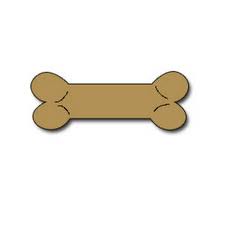Copyright 2010 Puppy 4 Sale. All Rights Reserved Privacy Policy
Get the perfect puppy...
Puppy 4 Sale has the right dog for you!
Home | Choosing the Right Puppy | Breeders | Puppy Names | Photo Gallery | Contact Us
Types of Puppies 4 Sale
Some information regarding a puppy
Puppies are typically born about 63 days from gestation. From there they immediately start nursing for about a month and then weaned off to dry food. By 7 weeks old, puppies don't rely anymore on nursing for food are now dependant on their own for nourishment.
From berth puppies have full sense of smell, but can't open their eyes or hear from their ears. However, this doesn't last long as after 2 weeks all senses start to function. A puppy still can't see or hear well so they use their nose to locate their mother for protection. Within 3-4 weeks a puppy becomes much more responsive to sound and even starts to bark, wag their tails, growl, and bite.
A puppy starts to develop quickly in their first few months. Once they start to get enough strength, it's time to start exploring around outside of their comfort zone. Because puppies are very social, they will spend most of the time playing with their litter or mother. It is also important that puppies socialize with humans. Having healthy interactions as they develop within the first eight to twelve weeks allows the puppy to get the adequate socialization they need so they don't display fearful behavior at a later age.
Puppy Nutrition
Your puppy relies on good nutrition. What you feed your dog can help with their health, coat, bones, growth, etc...
- Read the labels on what your buy. You want to make sure you are feeding your puppy with the nutritional facts set by the AAFCO. This information will be available on the food's packaging.
- Manage the portion sizes. With puppy food there are a lot of nutrients that aid in proper growth for a puppy. Because of this, smaller portions can be used compared to less digestible foods. When comparing prices between dog food, the price will even out if you manage the portions you fead your new dog.
Puppy Veterinary Care
Not only do you want to keep your puppy healthy through proper nutrition, but you also need to have routine care with a local vet to help protect again fleas, ticks, and worms. There are a lot of over the counter supplies that help with this as well.
- Be Safe: Prescriptions products are very effective as they have been tested many times for efficiency and safety. Talk to your vet and discuss the different products you may need for your puppy.
- Be Safer: You can also use over the counter medications for flease, ticks, and worms, but be careful as these medications haven't been tested nearly as rigorlously as prescriptions. Always consult with your veterinarian to make sure before using something on your puppy.
When getting a puppy there is a checklist you should review so you know what your getting into. You shopping list can contain food, crate, toys, grooming tools, leash, accessories, etc...which can add up to over $1,000. Here is an overview on what you should expect to shop for:
Collars and Leashes
Because puppies grow very quickly in their first year, purchasing a designer collar might not be the best choice. Look for something simple that can grow with your puppy.
- Simple Works: A buckle color made of nylon is a good choice. They wear very well on your dog and most give you a lot of room to grow. To fit the collar, you want to make sure you can fit two fingers between the collar and their neck.
- Light: When it comes to an adorable puppy, you don't want to use a collar that is too heavy for them. In order to keep them comfortable, find a collar and leash that is light and thin until they get older and stronger.
Identification
If you puppy was ever to get lost or stoney, having ID tags and identification can help recover your pet.
- Non Permanent: A simple $5 ID tag that can attach to your puppies collar.
- Permanent: Two options for this method are getting a tattoo or microchipping. Both are usually done doing spay or neuter.
Toys, Toys, Toys
Having toys for your puppy is great for dental hygiene, physical activity, teething, stimulation, and comfort. When choosing toys, make sure you are going with durability and size so your puppy won't swallow them.
- Know your puppy: Some puppies are ok with playing with safely playing with a strong durable toy. Other puppies will find a way to chew, shred, and even choke on any toy you give them. Be very careful when picking out toys for your dog. Also supervise your puppy to make sure they are safely playing with the toys.
Crates, Gates, and Bedding
When it comes to housetraining your puppy, crates and gates allow you to partition your home and give a safe training environment.
- Crates: When it comes to crating your puppy, you need to have a cage that is small enough so the puppy can't go the bathroom on one side and sit on the other. Because puppies grow quickly, it is recommended you get a bigger cage that you can partition.
- Gates: It's always good to keep your puppy in an area that you can see and control. Gates come in many different sizes and widths. Find that that works in your house so you and your puppy are comfortable.
Grooming supplies
Keeping your puppy healthy also involves grooming, brushing their teeth, and clipping their toenails. Having interaction with the human touch helps a dog with trust later in life.
- Supplies: It's good to get a nice brush, toenail clipper, finger brush, and dog toothpaste. This will ensure that your puppy stays healthy and looks good.
Puppy Information
Learn More about The Puppies Below
Search the site










